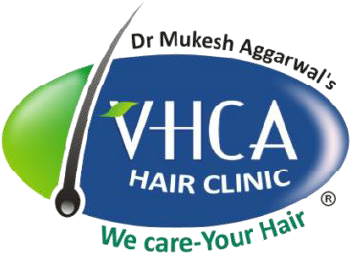Since 1928VHCA Hair Clinic World's 1st Ayurveda Hair Clinic
Seborrheic Dermatitis
Seborrheic Dermatitis is a common, chronic skin condition characterized by redness, inflammation, and flaky, oily patches on the skin, particularly on the scalp, face, and other areas rich in sebaceous (oil) glands. It often presents as dandruff when it affects the scalp, but can also appear as rashes or scales on other parts of the body. At VHCA Ayurveda Hair Clinic, we offer a comprehensive Ayurveda approach to manage and treat Seborrheic Dermatitis, focusing on restoring balance to the body and soothing the affected areas.
Understanding Seborrheic Dermatitis
Seborrheic Dermatitis is caused by an overproduction of sebum (skin oil) and an inflammatory response to a type of yeast fungus called Malassezia, which is naturally present on the skin. This condition can cause discomfort, itching, and self-consciousness due to its visible symptoms.
Causes of Seborrheic Dermatitis in Ayurveda
In Ayurveda, Seborrheic Dermatitis is often attributed to an imbalance in the Pitta and Kapha doshas:
1. Pitta Imbalance:
- Pitta Dosha, which governs heat, metabolism, and transformation in the body, can become aggravated, leading to inflammation and excessive oil production. This results in the redness, irritation, and scaling associated with Seborrheic Dermatitis.
2. Kapha Imbalance:
- Kapha Dosha, which controls moisture and lubrication, can also become imbalanced, contributing to the oily, flaky patches typical of Seborrheic Dermatitis.
3. Digestive Issues:
- According to Ayurveda, poor digestion or Agni (digestive fire) can lead to the accumulation of toxins (Ama) in the body, which can manifest as skin conditions including Seborrheic Dermatitis.
4. Stress and Lifestyle Factors:
- Emotional stress and an unhealthy lifestyle can disrupt dosha balance, contributing to the onset or exacerbation of Seborrheic Dermatitis.
5. Environmental Factors:
- Exposure to environmental pollutants, harsh chemicals, and extreme weather conditions can irritate the skin and contribute to the development of Seborrheic Dermatitis.
Ayurveda Treatment for Seborrheic Dermatitis at VHCA Ayurveda Hair Clinic
At VHCA Ayurveda Hair Clinic, we offer a holistic and personalized approach to treating Seborrheic Dermatitis, focusing on balancing doshas and promoting overall skin and scalp health.
1. Personalized Consultation:
- We begin with a thorough consultation to assess your unique dosha balance and identify the underlying causes of Seborrheic Dermatitis. This allows us to create a tailored treatment plan.
2. Herbal Remedies:
- Neem (Azadirachta indica): Known for its antifungal and anti-inflammatory properties, Neem helps to control fungal growth and reduce inflammation.
- Turmeric (Curcuma longa): Turmeric has potent anti-inflammatory and antimicrobial properties that help soothe irritated skin and reduce redness.
- Amla (Indian Gooseberry): Rich in Vitamin C and antioxidants, Amla helps to balance Pitta dosha and improve skin health.
4. Dietary Recommendations:
- A diet that balances Pitta and Kapha doshas is essential. We recommend consuming cooling and anti-inflammatory foods, such as fresh fruits, vegetables, and whole grains.
- Avoiding spicy, oily, and processed foods helps reduce excess oil production and inflammation.
5. Stress Management:
- Incorporating practices like Yoga, Pranayama (breathing exercises), and Meditation helps in managing stress, which can be a contributing factor to Seborrheic Dermatitis.
6. Skin Care Routine:
- Herbal Cleansers: Use mild, Ayurveda cleansers that contain ingredients like Neem, Aloe Vera, and Turmeric to cleanse the skin without irritation.
- Cooling Compresses: Applying compresses made from Cucumber and Mint helps to soothe and refresh irritated skin.
Overall
Seborrheic Dermatitis, while challenging, can be effectively managed with a holistic Ayurveda approach. At VHCA Ayurveda Hair Clinic, our comprehensive treatments aim to balance doshas, detoxify the body, and restore health to the skin and scalp. Experience the benefits of our personalized care and find relief from Seborrheic Dermatitis with natural, effective solutions tailored to your unique needs.
Connect for wellness: Begin Your Journey Today
